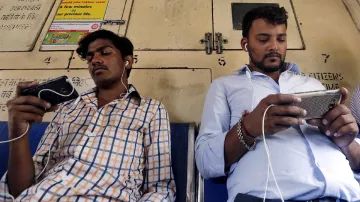In July, the major private telecom providers, namely Airtel, Jio, and Vodafone Idea, implemented price increases for their recharge plans. Subsequently, a notable shift has occurred, with many consumers opting for services offered by the public telecom enterprise, BSNL. Recent reports indicate that private telecom companies are poised to potentially reverse these price hikes, depending on forthcoming governmental actions.
The Cellular Operators Association of India (COAI), which represents the interests of these telecom providers, has formally petitioned the government to consider a reduction in the license fee imposed on telecom operators.
Currently, the license fee is structured at 8 percent of total revenue, which includes a network obligation charge of 5 percent. The COAI advocates for a revised fee structure that would lower this license fee to a range between 0.5 percent and 1 percent. They posit that a reduction in these fees would facilitate more effective network upgrades and expansions.
Significant to this discussion is the historical context of the license fee structure. The COAI argues that the original rationale for the existing fee—predicated on a relationship with the spectrum—has significantly diminished since, in 2012, the fee was decoupled from the spectrum, which is now allocated via a transparent auction process. Accordingly, it has been suggested that the license fee should be limited to covering only the administrative costs associated with the licensing process.
The Director General of COAI, SP Kochar, has articulated that the persistence of high license fees, particularly after removing the earlier spectrum-related justifications, is unwarranted. He argues that the fee should be set at a level commensurate with administrative expenses, rather than the current burdensome rate.
Furthermore, telecom operators assert that acceptance of this demand by the government and the telecommunications regulator could yield substantial advantages for the industry. While attending the recent India Mobile Congress, several officials conveyed that the current financial exigencies, including the obligation to pay Adjusted Gross Revenue (AGR), Corporate Social Responsibility (CSR) contributions, Goods and Services Tax (GST), and corporate taxes, impose significant constraints on their capacity to invest in technological advancements. Consequently, these fiscal pressures place telecom companies at a comparative disadvantage relative to other sectors.
ALSO READ: OnePlus 13's first look unveiled in unboxing video ahead of its official launch
